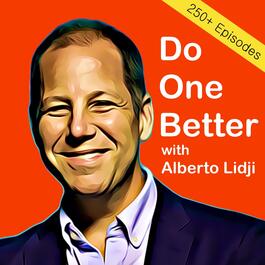
Shamina Singh, Founder and President of Mastercard's Center for Inclusive Growth: Economic Inclusion and the Entrepreneurial Spirit
Shamina Singh is the Founder and President of the Center for Inclusive Growth — Mastercard's social impact hub. The Mastercard Center for Inclusive Growth was founded with the intention of redefining corporate engagement in the social sector, moving beyond traditional philanthropy to leverage the full spectrum of Mastercard’s assets — technology, data, AI, expertise, and capital — in ways that drive meaningful economic inclusion. At the heart of this effort is a fundamental belief that networks power the modern economy, and access to these networks — whether financial, technological, or social — determines an individual's or a business’s ability to succeed. Financial inclusion is a key pillar of the Center’s work, recognizing that the divide between those who can access financial tools and those who cannot is not just an economic disparity but an opportunity gap with generational consequences. Just as income inequality has long been a focus of economic reform, the Center has identified a growing “information inequality” gap — the divide between those who have access to and control over data and AI, and those who do not. As the global economy becomes increasingly digital and data-driven, ensuring that historically marginalized communities and small businesses are not left behind is critical. One of the Center’s flagship initiatives, Strive, focuses on small business owners, particularly those in the “missing middle.” These entrepreneurs often struggle with access to capital, digital infrastructure, and essential networks. The Center has identified three key barriers to small business success: access to capital, digital and cybersecurity resilience, and connections to information and expertise. By addressing these challenges, the Center aims to support what it calls “stability entrepreneurs” — small business owners who are not merely looking for rapid growth but for steady, reliable income that allows them to sustain and expand their businesses over time. This work is global in scope, spanning 30 markets, but the challenges vary across regions. While ambition and entrepreneurial spirit are universal, the structural barriers to success differ widely. For example, in some regions, women lack access to traditional forms of collateral, such as property, making it difficult for them to secure loans. The Center has worked with central banks in countries like India and Pakistan to help in the recognition of alternative forms of collateral, such as gold, as a means for women entrepreneurs to access capital. In a world of accelerating technological change, inclusive innovation is not just a moral imperative — it is an economic necessity. Thank you for downloading this episode of the Do One Better Podcast. Visit our Knowledge Hub at Lidji.org for information on 300 case studies and interviews with remarkable leaders in philanthropy, sustainability and social entrepreneurship.
From "Do One Better with Alberto Lidji in Philanthropy, Sustainability and Social Entrepreneurship"


Comments
Add comment Feedback